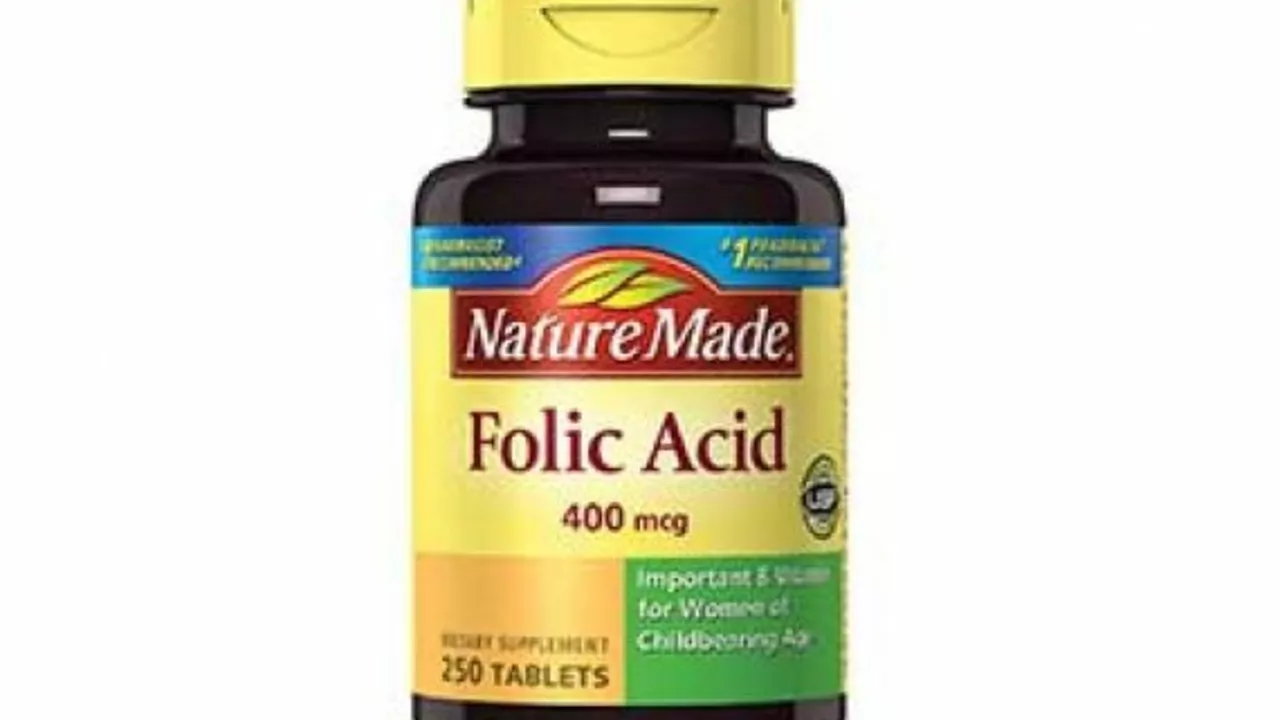Introduction to Folic Acid: An Essential Nutrient
Folic acid, also known as vitamin B9, is an essential nutrient that our bodies need for optimal health and well-being. It plays a crucial role in the synthesis of DNA, RNA, and proteins, as well as in the formation of red blood cells. In this article, we will explore the science behind folic acid and how this dietary supplement supports our well-being. From understanding its vital functions in the body to discovering the benefits of folic acid supplementation, we will dive into this fascinating topic to help you make informed decisions about your health.
Understanding the Role of Folic Acid in the Body
Our bodies require folic acid to carry out various vital functions. One of its primary roles is in the synthesis of DNA and RNA, which are the genetic material responsible for our cells' growth, reproduction, and division. Folic acid is also required for the production of proteins, which are the building blocks of our cells and tissues. Additionally, folic acid plays a crucial role in the formation of red blood cells and helps prevent anemia.
Another essential function of folic acid is in the metabolism of homocysteine, an amino acid naturally found in our bodies. High levels of homocysteine can increase the risk of cardiovascular diseases, stroke, and other health issues. By converting homocysteine into another amino acid called methionine, folic acid helps maintain healthy homocysteine levels and supports cardiovascular health.
Folic Acid and Pregnancy: A Critical Connection
Folic acid is especially important during pregnancy, as it plays a critical role in the development of the baby's neural tube. The neural tube eventually forms the baby's brain and spinal cord, and adequate folic acid intake is essential for preventing neural tube defects (NTDs) such as spina bifida and anencephaly. Pregnant women and those planning to conceive are advised to take a daily folic acid supplement to ensure they are getting enough of this essential nutrient.
Furthermore, folic acid has been shown to reduce the risk of other birth defects, such as cleft lip and palate and certain heart defects. It also supports the growth of the placenta and helps prevent pregnancy complications like preeclampsia, a condition characterized by high blood pressure and damage to organs such as the liver and kidneys.
Benefits of Folic Acid for Mental Health
Research has shown that folic acid can have a positive impact on mental health. Low levels of folic acid have been linked to depression, and studies suggest that supplementation may help reduce the symptoms of depression and enhance the effectiveness of antidepressant medications.
Moreover, folic acid is important for maintaining healthy brain function throughout our lives. It plays a crucial role in the production of neurotransmitters, the chemical messengers that transmit signals between nerve cells in the brain. By supporting the synthesis of neurotransmitters, folic acid contributes to optimal cognitive function and mental well-being.
Fighting Age-Related Diseases with Folic Acid
Folic acid's role in maintaining healthy homocysteine levels may help protect against age-related diseases such as Alzheimer's disease and dementia. High levels of homocysteine have been associated with an increased risk of cognitive decline and Alzheimer's disease. By promoting the conversion of homocysteine into methionine, folic acid may help support brain health and reduce the risk of these diseases.
Additionally, folic acid's antioxidant properties can help reduce inflammation and oxidative stress in the body. Oxidative stress has been linked to various age-related diseases, including cancer, cardiovascular diseases, and neurodegenerative disorders. By neutralizing harmful free radicals and reducing inflammation, folic acid may help protect against these diseases and promote healthy aging.
Enhancing Hair, Skin, and Nail Health with Folic Acid
Folic acid can also have a positive impact on the health and appearance of our hair, skin, and nails. It supports the growth and repair of these tissues by promoting the synthesis of proteins like collagen and keratin. By ensuring adequate folic acid intake, you can help maintain strong, healthy hair, skin, and nails.
Furthermore, folic acid may help prevent premature graying of hair. Research suggests that low levels of folic acid can lead to a decrease in melanin production, the pigment responsible for our hair color. By maintaining healthy folic acid levels, you can support melanin production and potentially reduce the risk of premature graying.
Sources of Folic Acid: Food and Supplements
Folic acid can be obtained from various dietary sources, including leafy green vegetables, legumes, whole grains, and fortified foods such as cereals and bread. However, it can be challenging for some individuals to get enough folic acid from their diet alone, especially those with specific dietary restrictions or health conditions that affect nutrient absorption.
In these cases, folic acid supplementation may be necessary to meet the body's needs. Folic acid supplements are available in various forms, including tablets, capsules, and chewable gummies. It is essential to consult with a healthcare professional before starting any supplementation to determine the appropriate dosage and ensure that it does not interact with any medications you may be taking.
Recommended Daily Intake of Folic Acid
The recommended daily intake of folic acid varies depending on age, sex, and life stage. For adults, the general recommended daily allowance (RDA) is 400 micrograms (mcg) of folic acid. Pregnant women have an increased need for folic acid and should aim for 600 mcg daily, while breastfeeding women should aim for 500 mcg daily.
It is essential to follow the RDA guidelines and consult with a healthcare professional to ensure that you are getting the right amount of folic acid for your individual needs. Excessive folic acid intake can have adverse effects, such as masking the symptoms of vitamin B12 deficiency, which can lead to nerve damage if left untreated.
Conclusion: Supporting Your Well-being with Folic Acid
From its vital functions in DNA synthesis and red blood cell formation to its crucial role in pregnancy and mental health, folic acid is an essential nutrient that supports our overall well-being. By ensuring adequate folic acid intake through a balanced diet and supplementation when necessary, you can promote your health and prevent various diseases and complications. Remember to consult with a healthcare professional before starting any supplementation and to follow the recommended daily intake guidelines to optimize the benefits of folic acid for your well-being.





Comments (14)